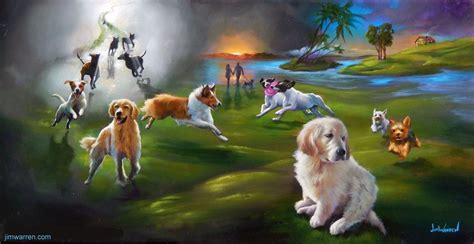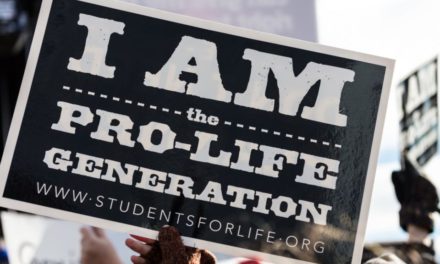Do the rest of the world think Westerners, perhaps Americans in particular, make fools of themselves over their dogs? Throughout history, the very word “dog” has stood as a reproach—well, when applied to a human: just look in Homer or Shakespeare.
Worse than that, denizens of the Third World who aren’t so fastidious about main courses eat dog. So do prisoners of war (think of the book or film of King Rat) who will eat any kind of meat they can get, as well as an occasional President of the United States who knows the press will forgive him for any unsavory deed. Taken as a whole, much of the world sees a dog as less than man’s best friend.
But in the West and, indeed, much of the East, dogs hold a special place in the hearts of men and women. Stories abound praising them: Lad: a Dog by Albert Payson Terhune, Bob, Son of Battle by Alfred Ollivant, and, perhaps the most famous to American and English readers, Lassie Come Home by Eric Knight. Dostoevsky speaks of a wonderful dog, Sharik, in Siberia where he was a political prisoner. Poetry celebrates them, as, for example, in Alexander Pope’s lines from his Essay on Man, Epistle I that describe the “Indian” who “thinks, admitted to that equal sky, / His faithful dog shall bear him company.”
What quality lies in the heart of a dog that inspires such love? I won’t try to answer that, but I do know that their loyalty, their patience (with their human masters, of course), their affection so easily given, and their need for affection move us to treat them as if they were almost human.
It’s hardly surprising, then, that the loss of a dog, particularly one that has been a part of the family for years, grieves us, although not as much as the loss of a son or daughter, nephew or niece. I knew this reality from past experience, but it was brought home to me recently and poignantly with the death of Mandy, our border collie, one month shy of her fourteenth year. As many dog-lovers boldly claim of their dogs, I knew Mandy was the best dog in the world, a Frisbee-catching beauty who, up to her last couple of weeks, retained her youthful looks and, except for her final two or three days, a great deal of her usual energy and cheer. A series of strokes followed by pneumonia changed her at last, but she had a good life, and surely she enriched mine.
But what of the future—I mean, for a beloved dog? Is death the utter and complete end? Many have pondered the question, but for at least half of them the answer remains simple: when a dog dies, nothing remains. That frame of mind prompted a friend of mine, as we conversed about Mandy’s death, to declare (not, by the way, with a mean spirit) that dogs have no souls, which settled the question of Mandy’s fate. The medievalist in me bristled slightly. Surely, I thought to myself, St. Thomas, drawing on Aristotle, would have understood that all things animate have souls by definition and etymology (anima).
What sort of souls? That’s the question. As the schoolmen concluded, there are three kinds: vegetative, sensitive, and intellective. Plants have the first: they grow and multiply, but they certainly don’t think or will. Beasts—dogs for our purposes—have a more complex inner life. As sensitive souls, they respond with real awareness to the world around them, and they act on it as well. After a fashion, they think, make choices, obey, or disobey although not rationally. Yes, they have souls.
Classifying the dog’s soul as immortal is where the controversy heats up. A dachshund may be as stubborn as you or I, but God didn’t create it in His image as He did man. What Christian—Roman Catholic, Protestant, or Orthodox—will deny that fact? Not I. So, can any case be made for dogs—our dogs—in the world that awaits us when God makes all things new? Scripture’s silence on the matter often leads people to conclude the question answered; without chapter and verse to support the claim (so goes the logic), dogs—and, yes, cats—that they have immortal souls, anyone who believes they do entertains a forlorn and foolish hope. Case closed.
For me and surely millions of others, silence, however, is not proof. What, then, can we say that will provide even minimal grounds for believing we’ll be reunited one day with our dogs? My friend and fellow professor at Liberty University Karen Prior has argued that our naming of dogs and other pets gives them a singular status and in essence makes them an extended part of the human community. She gets no argument from me, and I will take the idea a step further. The superiority of God over man, so absolute that words cannot truly express the gulf, is bridged when God freely reaches out to man, most notably when he saves us from our sins; more than that, he makes us new creatures in Christ.
Unlike God, we are not infinitely greater than our dogs, and we don’t punish them for sins as such, but we do for disobedience. Yet we forgive them much as we would a human. The closer we get to our dogs, the more we treat them as humans—albeit of limited understanding. As Dr. Prior has said, we name them; in addition, we talk to them, provide for them, and take them into our social life as into communion. We raise them to human level (without their attaining equality) in a manner vaguely analogous to God’s elevating us to a new status spiritually.
What dog-lover does not think this way, more or less? Of course, the argument runs by analogy, but analogy is a powerful and useful thing. Others, I believe, have seen the correspondence; it may account for C. S. Lewis’s talking animals and the similar tendency in fairy tales worldwide to present animals as major figures that talk and perform acts both good and evil. Does ancestral memory vaguely recall a prelapsarian state in which animals had the capacity to imitate man? Who can say? But dog for dinner notwithstanding, the phenomenon of talking animals who are friends (and occasionally enemies) to man spans the world’s cultures.
Again, I’ll admit this is not a rational argument or even a Scriptural or an evidential one. But experience can be quite eloquent and convincing regarding this matter. If the new heaven and earth, which will be as one, includes animals, I see no reason why the animals we knew and loved should not be among them. My hope of seeing Mandy the border collie is not an article of faith, but it is one of hope. And if I see her again, I sincerely hope she’ll talk. We’ll share some great memories.
Dedicated to Mandy
















As I read, I was recalled St. Paul’s reminder that “all creation is groaning toward perfection” through Christ in the renewal of the Father. All creation. I don’t know yet how to apply this to the above arguments for or against our beloved pets waiting for us in Heaven, but it seems an instructive starting point to think on.
Animals have no original sin. They are innocent and have no concupiscence as their masters and mistresses. Animals don’t require salvation or an afterlife. But as St. Paul rightly said we have no idea what wonderful things await us in paradise. Plus we concupiscent beings will get our bodies back and those bodies will require a glorified world to hold them. Is it not likely that glorified world will hold our loved ones and our beloved pets? I don’t know but I trust God has something very special planned for all His creatures.
Dogs do not have immortal souls. But neither do trees or flowers. Yet those who have had near death experiences in which they saw something of Heaven nearly always mention trees, flowers and intense natural beauty. Shall flowers be saved, but not beloved animals?
Also, Scripture speaks of all nature groaning, waiting to be delivered from futility. This means plants and animals.
Aquinas. in the third volume of the Summa, follows ancient Greco-Roman astronomy, which held that all celestial objects (stars, planets, etc.) were by their nature immortal, and therefor capable of being part of Heaven, while animate beings other than humans, not being immortal by nature, could not. However, modern astronomy has shown that celestial objects came into existence at various times, and will cease to exist by various means (usually by blowing themselves up in novas).
It would have been better to have examined Scripture more closely. Greco-Roman astronomy was wrong. The new heavens and the new earth of Scripture are unlikely to be as lifeless as the moon. If all nature is recreated, that would reasonably include animals as well, and therefore, it is reasonable to think that God van recreate the creatures we have loved as well.
Dr. Curtis,
Although Thomas Aquinas thinks animals have no afterlife, I still hope that they do. I have had 5 dogs and 5 cats in my lifetime and the passing of each one is a heartache. It occurred to me that not being human beings, they are not born in the state of original sin, therefore, they are innocent creatures, only going through life with the inclinations with which they have been given. Anything that they do is within their “nature”. I don’t know if I am correct or not but if so, it seems to me that being granted eternal life is possible for them. Since The Father created them with such care, they must have value in His eyes.
Dog spelled backwards is of course God. There’s a reason for that. Most dogs have God-like attributes like loyalty, unconditional love, faithfulness, joyfulness, ability to forgive quickly which millions of humans lack in bucket fulls. We can learn from our canine friends. And like God they wish to be our friends if we respect them love them and honor them. I trust dogs long before I trust most humans. The Lord witnesses how we treat others and that also includes how we treat our dear furry friends. Dogs inhabit Heaven because they are a creation of God. My Sammy as well as my other canine angels are in the company of Jesus and I rest assured that one day we will all meet again. God bless all the sweet canines of this world and the next!
I have always joked that if there aren’t dogs in heaven, I don’t want to go.
Of course I don’t know, but at the moment the vet gave my beloved border collie the lethal injection, my watch chimed and I read ‘Divine Mercy;” I had forgotten it was 3:00 on a Friday. that “coincidence” relieved my grief a great deal. I am sure Shadow is bounding through a meadow in heaven, enjoying himself as he waits.